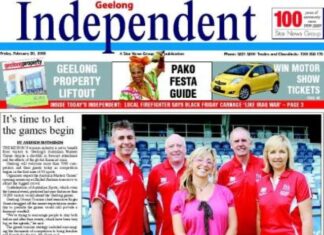By NOEL MURPHY
AN OVERSEAS buyer could be good for Geeong’s The Costa Group produce giant, injecting capital, driving growth and underpinning long-term prospects, according to director Robert Costa.
The biggest private fruit and vegetable company in Australia plans to sell up, either by stockmarket float or a trade sale – potentially becoming 100 per cent offshore-owned.
A sale is tipped to draw between $800 million and $1 billion.
“But there’s nothing intrinsic in this move that will change the management structure. This is a change of share,” Mr Costa said.
“As an IPO (initial public offer), Costa will be able to retain a percentage of it; under a trade sale it could be a different thing, they tend to be 100 per cent.
“I see external capital as always good for the country. Everyone gets a little concerned about foreign investment but they can’t take it anywhere – the farm’s still here.
“But if foreign investors came back and said they would make cars in Geelong again, everyone would be happy. This foreign investment would assist the current account, there are no negatives regarding staff – more capital means the company can do more things.”
Mr Costa said China’s interest in Australian agriculture enterprises augured well for the sector, in which debt levels have kept banks bearish about extending credit in recent years.
“Agriculture needs lots of investment to get it on a world trading scale,” he said.
“The smaller family operating system doesn’t have it but this would allow Australia to compete with broadacre cropping, dry-cropping and so on at world scale.”
The Costa Group is already half foreign-owned after US firm Paine & Partners bought 50 per cent of the company in 2012. The other 50 per cent is owned by brothers Robert, Frank and Anthony Costa, who retained overall control under the deal.
The group employs 7000 staff and exports 20 per cent of its produce. It has expanded into overseas operations, including blueberries in Morocco and China.
“Agriculture offers great opportunities in Australia. It’s very well placed in fact for dry cropping although when you come to horticulture there are severe limitations with water,” Ms Costa said.
“But within those constraints, it’s a good country to produce and with Chinese investors there’s the added advantage of putting money into a stable economy.
“We can develop and harvest more acres, hectares, in horticulture right through to broadacre farming. There is still a lot of room for development of the cattle market. I’d like to see the Federal Government ease its restriction.
“I think it’s all positive.”









